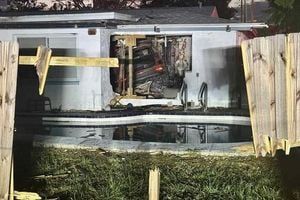The U.S. Department of Agriculture (USDA) has suspended its 1890 Scholars Program, which plays a pivotal role in supporting students from rural and underserved backgrounds attending historically Black colleges and universities (HBCUs). This abrupt halt has ignited significant debate surrounding the impact and fairness of such federal initiatives.
Initially established to bolster enrollment among the 19 historically Black land-grant universities, the 1890 Scholars Program aims to cultivate careers among students pursuing studies related to food, agriculture, and natural resources. The program has traditionally provided comprehensive scholarships covering full tuition, fees, books, and room and board, enabling scholars to focus on their education without the burden of debt. For the fiscal year 2024, the USDA awarded $19.2 million to 94 students through this program, demonstrating its substantial commitment to enhancing educational access.
Now, the USDA's decision to suspend the program, cited on its website as being "pending review," has left many students and institutions grappling with uncertainty about future funding. With applications for 2025 currently on hold, the ramifications could be dire for students like those at Alabama A&M University and Tuskegee University—two key recipients of these funds.
Rodney Stone, Tuskegee’s USDA liaison, articulated the gravity of the situation, stating, “It may not be looking too good for future applicants.” He reflected on the growing concerns among students who rely heavily on these scholarships to access educational opportunities.
The suspension has been met with sharp criticism, particularly from lawmakers such as Representative Alma S. Adams of North Carolina. Adams condemned the USDA's action, declaring it “a clear attack on an invaluable program” and emphasizing its role as a corrective measure against historical racial discrimination experienced by these educational institutions
Concerns of potential backlash against diversity and inclusion initiatives have risen as the USDA’s announcement coincides with the broader, recent history of initiatives aimed at rolling back such efforts. Under previous administrations, particularly during Trump’s presidency, several executive orders targeted programs focused on rallying for diversity and equity, raising apprehensions about whether the current decision signals yet another step away from supporting marginalized communities.
Many proponents of the decision argue scholarship programs should be universally accessible, regardless of race or historical background. They advocate for funding strategies aimed at creating equity for all students rather than maintaining programs perceived to be tied to historical grievances. Nevertheless, this perspective oversimplifies the inherent role HBCUs have played throughout history, especially concerning Black education access.
Historically Black colleges and universities were established as safe spaces for Black students who, for decades, faced exclusion from predominantly white institutions (PWIs). By trimming financial support for programs like the 1890 Scholars Program, fears abound around how this could disproportionately harm students already facing systemic barriers.
While USDA officials have yet to clarify whether this suspension is temporary or permanent, the reaction across the educational community signals the importance of this program. Advocates and stakeholders are expected to rally around the issue, demanding transparency and restoration as the USDA undertakes its review process.
The impacts of such decisions ripple outward, potentially discouraging prospective students from pursuing degrees at institutions like North Carolina A&T State University, the largest HBCU, known for its commitment to agricultural research and innovation. Without these scholarships, many students may need to reconsider their educational prospects or incur burdensome debt.
The Chamber of spokespeople, advocates, and educators is determined to lift their voices against these shifts. Encouragingly, they find common ground, calling for the USDA to



